Vauxhall Astra vs VW ID.4 - Differences and prices compared
Compare performance (225 HP vs 340 HP), boot space and price (25200 £ vs 34600 £ ) at a glance. Find out which car is the better choice for you – Vauxhall Astra or VW ID.4?
Costs and Efficiency:
Price and efficiency are often the first things buyers look at. Here it becomes clear which model has the long-term edge – whether at the pump, the plug, or in purchase price.
Vauxhall Astra has a distinct advantage in terms of price – it starts at 25200 £ , while the VW ID.4 costs 34600 £ . That’s a price difference of around 9381 £.
In terms of energy consumption, the advantage goes to the Vauxhall Astra: with 15.40 kWh per 100 km, it’s minimal more efficient than the VW ID.4 with 15.60 kWh. That’s a difference of about 0.20 kWh.
As for electric range, the VW ID.4 performs clearly perceptible better – achieving up to 569 km, about 150 km more than the Vauxhall Astra.
Engine and Performance:
Under the bonnet, it becomes clear which model is tuned for sportiness and which one takes the lead when you hit the accelerator.
When it comes to engine power, the VW ID.4 has a evident edge – offering 340 HP compared to 225 HP. That’s roughly 115 HP more horsepower.
In acceleration from 0 to 100 km/h, the VW ID.4 is distinct quicker – completing the sprint in 5.40 s, while the Vauxhall Astra takes 7.50 s. That’s about 2.10 s faster.
In terms of top speed, the Vauxhall Astra performs clearly perceptible better – reaching 235 km/h, while the VW ID.4 tops out at 180 km/h. The difference is around 55 km/h.
There’s also a difference in torque: VW ID.4 pulls convincingly stronger with 679 Nm compared to 360 Nm. That’s about 319 Nm difference.
Space and Everyday Use:
Whether family car or daily driver – which one offers more room, flexibility and comfort?
Both vehicles offer seating for 5 people.
In curb weight, Vauxhall Astra is clearly lighter – 1341 kg compared to 1975 kg. The difference is around 634 kg.
In terms of boot space, the VW ID.4 offers clearly perceptible more room – 543 L compared to 422 L. That’s a difference of about 121 L.
In maximum load capacity, the VW ID.4 performs slightly better – up to 1575 L, which is about 236 L more than the Vauxhall Astra.
When it comes to payload, VW ID.4 slight takes the win – 551 kg compared to 509 kg. That’s a difference of about 42 kg.
Who wins the race in the data check?
The VW ID.4 is decisively ahead in the objective data comparison.
This result only shows which model scores more points on paper – not which of the two cars feels right for you.
Costs and Consumption
View detailed analysis
Engine and Performance
View detailed analysis
Dimensions and Body
View detailed analysis
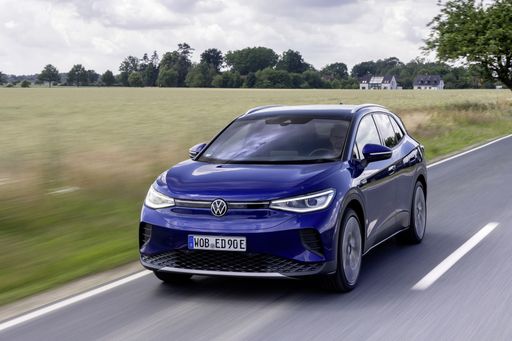
VW ID.4
Vauxhall Astra
The Opel Astra strikes a neat balance between everyday practicality and engaging handling, so the daily grind suddenly feels a bit less dull. Inside it's intelligently packaged with modern kit and comfortable seating, making it a very sensible pick for buyers who want a dependable hatchback that doesn't take itself too seriously.
details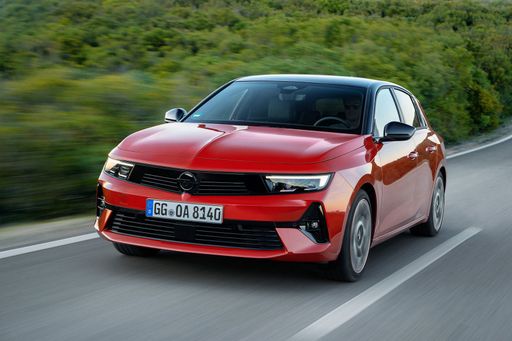

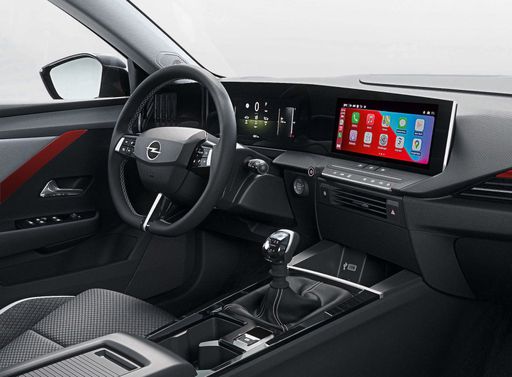
VW ID.4
The VW ID.4 is a calm, roomy electric SUV that turns everyday driving into a quietly confident experience, its practical packaging and smooth manners tailored perfectly for family life. Volkswagen's solid build and intuitive interior tech mean you get electric practicality without the sci‑fi theatrics, making the ID.4 a sensible, surprisingly likable choice for most buyers.
details
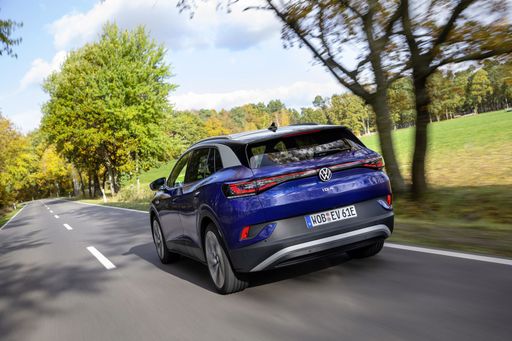
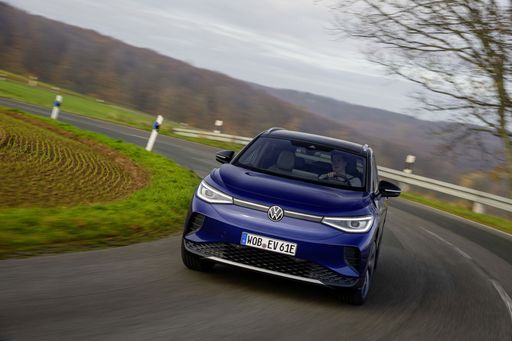
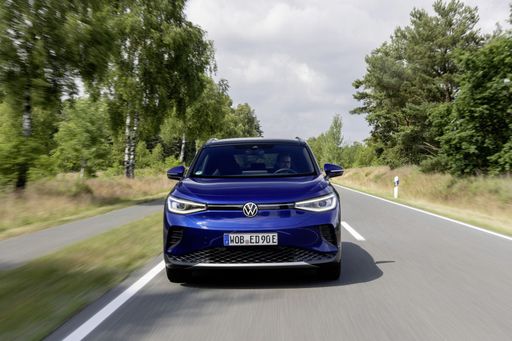
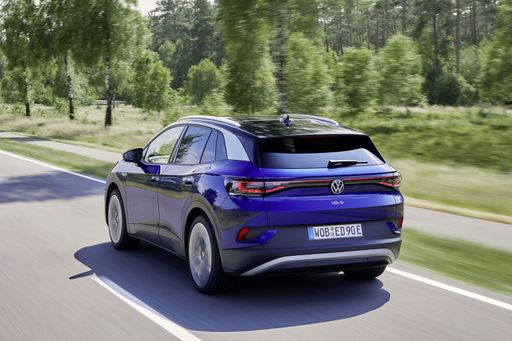

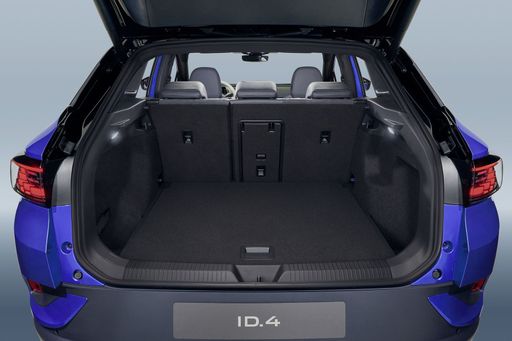
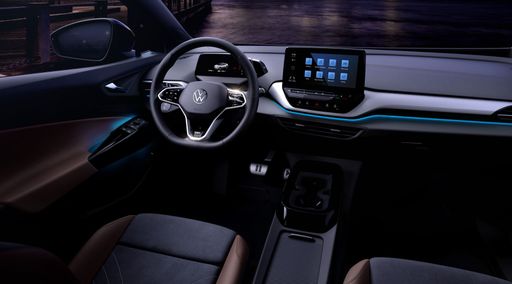
Costs and Consumption |
|
|---|---|
|
Price
25200 - 40500 £
|
Price
34600 - 47200 £
|
|
Consumption L/100km
2.2 - 6 L
|
Consumption L/100km
-
|
|
Consumption kWh/100km
15.40 kWh
|
Consumption kWh/100km
15.6 - 17 kWh
|
|
Electric Range
82 - 419 km
|
Electric Range
356 - 569 km
|
|
Battery Capacity
51 kWh
|
Battery Capacity
52 - 77 kWh
|
|
co2
0 - 135 g/km
|
co2
0 g/km
|
|
Fuel tank capacity
42 - 52 L
|
Fuel tank capacity
-
|
Dimensions and Body |
|
|---|---|
|
Body Type
Hatchback
|
Body Type
SUV
|
|
Seats
5
|
Seats
5
|
|
Doors
5
|
Doors
5
|
|
Curb weight
1341 - 1736 kg
|
Curb weight
1975 - 2248 kg
|
|
Trunk capacity
352 - 422 L
|
Trunk capacity
543 L
|
|
Length
4374 mm
|
Length
4582 - 4584 mm
|
|
Width
1860 mm
|
Width
1852 mm
|
|
Height
1432 - 1488 mm
|
Height
1619 - 1634 mm
|
|
Max trunk capacity
1268 - 1339 L
|
Max trunk capacity
1575 L
|
|
Payload
414 - 509 kg
|
Payload
515 - 551 kg
|
Engine and Performance |
|
|---|---|
|
Engine Type
Petrol, Diesel, Electric, Petrol MHEV, Plugin Hybrid
|
Engine Type
Electric
|
|
Transmission
Manuel, Automatic
|
Transmission
Automatic
|
|
Transmission Detail
Manual Gearbox, Automatic Gearbox, Reduction Gearbox, Dual-Clutch Automatic
|
Transmission Detail
Reduction Gearbox
|
|
Drive Type
Front-Wheel Drive
|
Drive Type
Rear-Wheel Drive, All-Wheel Drive
|
|
Power HP
130 - 225 HP
|
Power HP
170 - 340 HP
|
|
Acceleration 0-100km/h
7.5 - 10.6 s
|
Acceleration 0-100km/h
5.4 - 9 s
|
|
Max Speed
170 - 235 km/h
|
Max Speed
160 - 180 km/h
|
|
Torque
230 - 360 Nm
|
Torque
310 - 679 Nm
|
|
Number of Cylinders
3 - 4
|
Number of Cylinders
-
|
|
Power kW
96 - 165 kW
|
Power kW
125 - 250 kW
|
|
Engine capacity
1199 - 1598 cm3
|
Engine capacity
-
|
General |
|
|---|---|
|
Model Year
2023 - 2025
|
Model Year
2023 - 2025
|
|
CO2 Efficiency Class
D, A, C, B
|
CO2 Efficiency Class
A
|
|
Brand
Vauxhall
|
Brand
VW
|
What drive types are available for the Vauxhall Astra?
Available configurations include Front-Wheel Drive.




